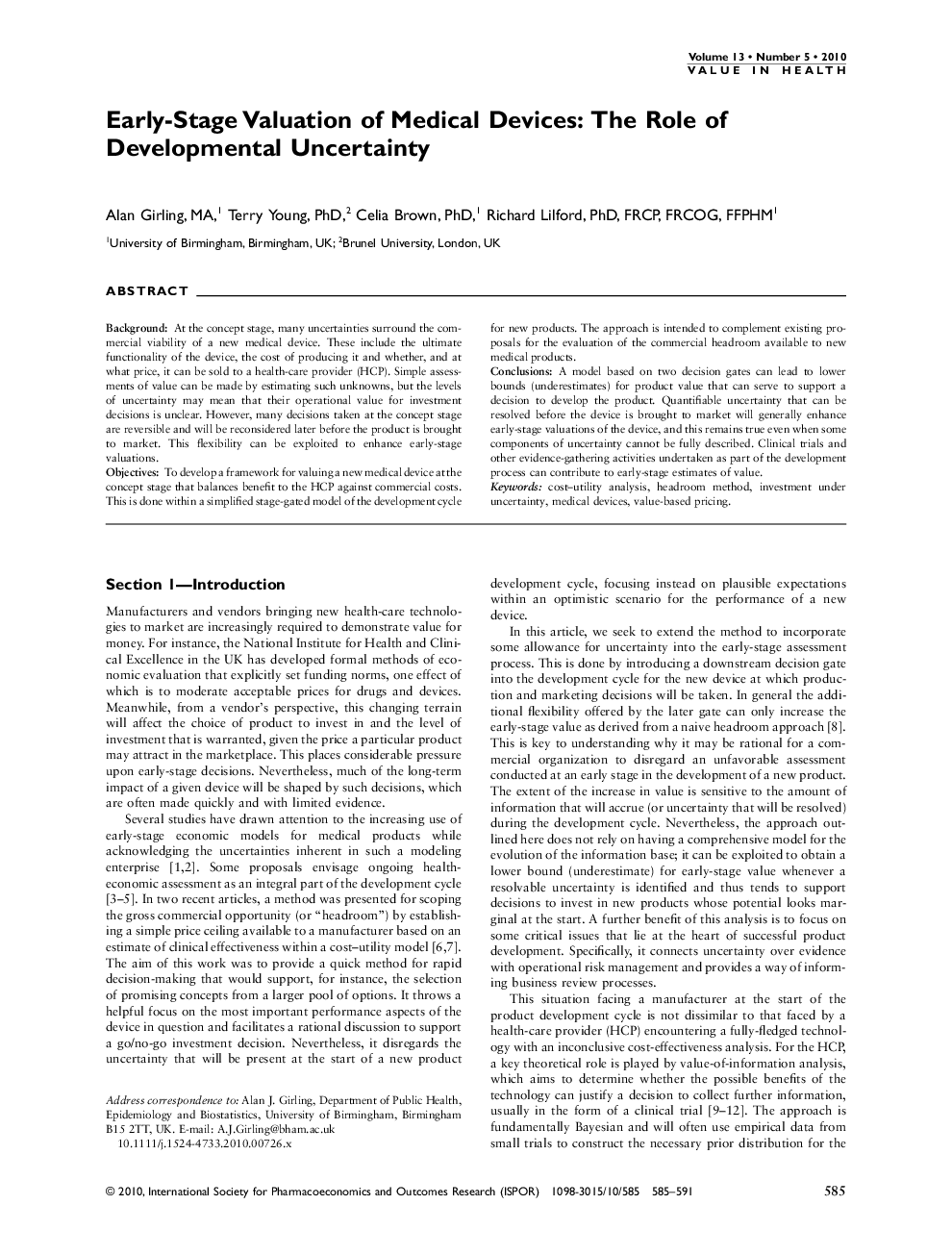| Article ID | Journal | Published Year | Pages | File Type |
|---|---|---|---|---|
| 989690 | Value in Health | 2010 | 7 Pages |
BackgroundAt the concept stage, many uncertainties surround the commercial viability of a new medical device. These include the ultimate functionality of the device, the cost of producing it and whether, and at what price, it can be sold to a health-care provider (HCP). Simple assessments of value can be made by estimating such unknowns, but the levels of uncertainty may mean that their operational value for investment decisions is unclear. However, many decisions taken at the concept stage are reversible and will be reconsidered later before the product is brought to market. This flexibility can be exploited to enhance early-stage valuations.ObjectivesTo develop a framework for valuing a new medical device at the concept stage that balances benefit to the HCP against commercial costs. This is done within a simplified stage-gated model of the development cycle for new products. The approach is intended to complement existing proposals for the evaluation of the commercial headroom available to new medical products.ConclusionsA model based on two decision gates can lead to lower bounds (underestimates) for product value that can serve to support a decision to develop the product. Quantifiable uncertainty that can be resolved before the device is brought to market will generally enhance early-stage valuations of the device, and this remains true even when some components of uncertainty cannot be fully described. Clinical trials and other evidence-gathering activities undertaken as part of the development process can contribute to early-stage estimates of value.
